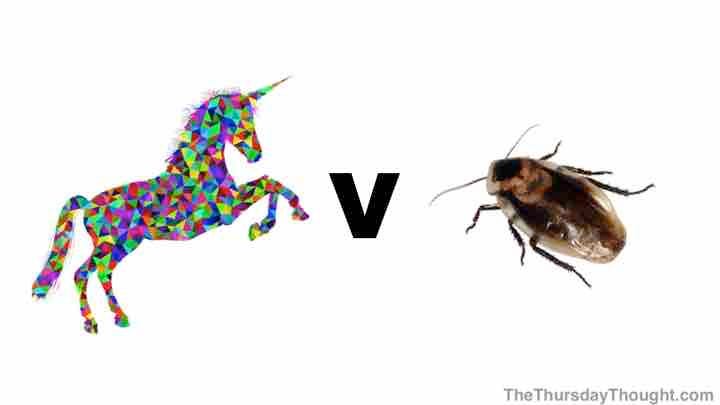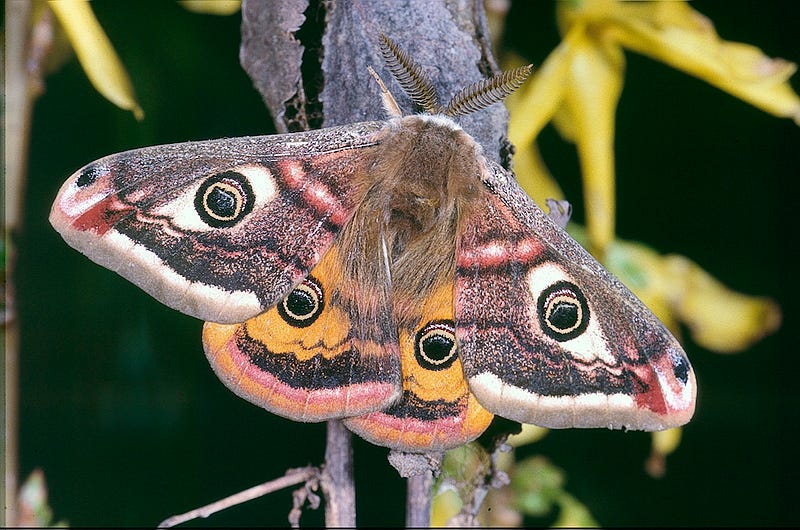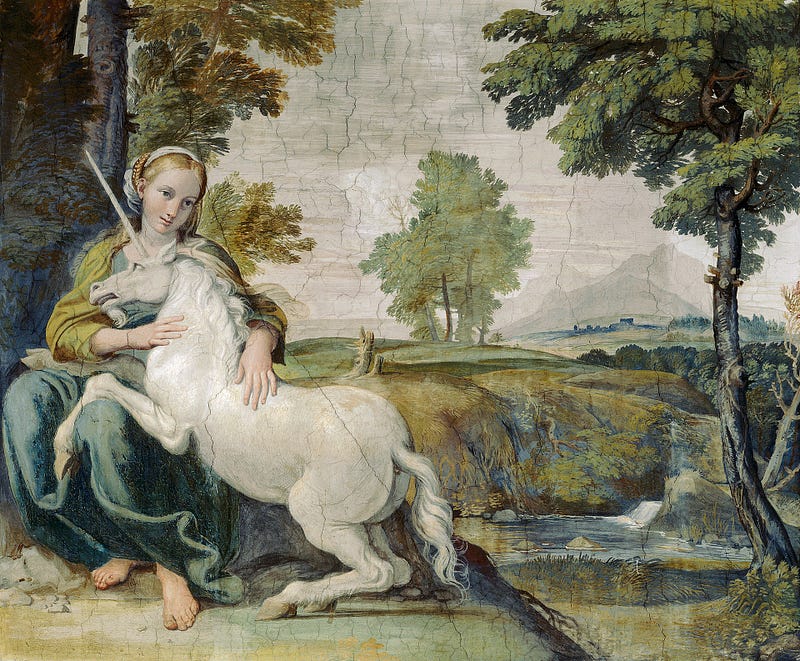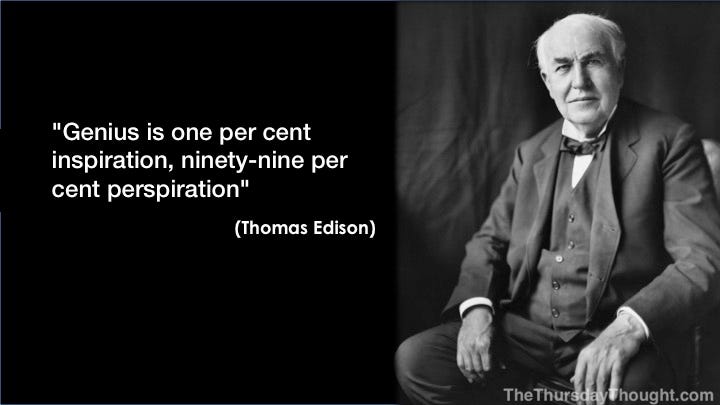
Moths

There is a story that goes like this:
A man finds a cocoon of an Emperor moth. He takes it home so he can watch the moth break out of the cocoon when the time comes.
Soon afterwards, a small opening appears in the cocoon, he sat and watched for hours as the moth struggled to force the body through that little hole. The moth seemed to be stuck and appeared to have stopped making progress. The man, in his kindness, decided to help the moth. He took a pair of scissors and carefully snipped off the remaining bit of the cocoon. The moth then emerged easily.
The man was surprised to see the moth’s scrawny body with its wings wrinkled and shrivelled. He expected that at any moment, the wings would enlarge and expand to support the moth’s body. Neither happened. The little moth spent the rest of its short life crawling around with a scrawny body and shrivelled wings. It was never able to fly.
Unbeknownst to the man the struggle required for the moth to get through the tiny opening was necessary to force fluid from the body of the moth into its wings, much like air being pumped into a tyre tube. The moth should have been able to fly once it broke out from the cocoon, but being deprived of the struggle deprived it of flight.
Freedom and flight would only come after the struggle.
Unicorns and Cockroaches
Referring to startups, you may have heard the term it is better to be a cockroach than a unicorn.

Unicorn is a legendary creature, commonly described as extremely wild, a symbol of purity and grace, which could only be captured by a virgin.
Unicorn has become a silicon valley term for startups characterised by superfast growth, fuelled by VC money and not sales or customer acquisition. The approach is to build scale/acquire audience and then focus on revenue once market share is achieved.
Cockroaches are one of the most resilient creatures in the world. They can tolerate environments from artic cold to tropical heat. They happily live in litter, in rotting wood, in cavities under bark, under log piles and among debris. Some species are capable of remaining active for a month without food. Some can go without air for 45 minutes.
A cockroach startup, in contrast to a unicorn, builds slowly and steadily. It keeps a close eye on revenues, profits and spending. It is rooted more in reality than legend.
The Innovation Show has given me great opportunities to speak to some real leaders in our the world of business and startups. These leaders have alluded to scaling slowly, revenue and customer-centricity being king and that struggle creates grit and rewires the brain.
Padraig O’Ceidigh, founder of Aer Aran and serial entrepreneur refers to struggles making the champion: “It is the times that you fall on your backside and you decide to pick yourself up, you start creating new thought patterns in your brain so that when it happens next time, you say to yourself Ok that happened, now let me learn where do we go from there.”
Colm Lyon, founder of Realex payments and Pay with Fire refers to the fact that you only grow your employee base when you really have to, premature scaling can really kill companies: “When you think you need another person wait, when you think you really need another person wait, when you think you really, really need another person wait.”
There are many startups that do not fully respect the capital they are using. If they are privileged enough to be in the position of using an investors capital, this should be respected. You do see some startups getting into a mentality that just because a funding round has been closed that the job is done. You do see some startups strolling in to the office after a late night out, late to work and with no game plan for the day ahead (an office that they may be paying above the odds rent for, complete with new plush beanbags and a brand new foosball table).
Often the startup which has worked hard, struggled to get funding, been on the ropes many times and may have even been knocked out a few times, but keeps getting back up, that is the start up that succeeds. Yes, some unicorns make it big, but the basics of business still hold true, you need to invest of yourself, make sacrifices and have integrity.

Children
On the Innovation Show this week I talk to co-founder of KIPP (Knowledge is Power Programme) Mike Feinberg. Mike and his colleague Dave Levin met on the Teach for America Programme. This is a non-profit that enlists future leaders to commit to teaching for at least two years in a public school in one of the 52 low-income communities that the organisation serves. KIPP began in 1994 Dave and Mike completed the Teach For America programme. The original KIPP Academies have a sustained record of high student achievement.
The kids that come through this programme come from very low income backgrounds. When they succeed in business they do it in the face of huge adversity and they absolutely appreciate it.
I am a parent and have been a coach of senior rugby players and I do think a sense of entitlement rather than enablement has crept in to our society. We live in a society of lawnmower parenting, where parents smooth the way ahead of their children so life is easier, this ultimately does not help as to be successful in life you need to overcome challenges. We see helicopter parenting, hovering over kids ensuring that they don’t stumble and fall. As a rugby coach, the first thing you should teach players is how to fall. As a rugby player you need to teach yourself how to get back up quicker than anyone else and the only way to do this is by falling first.
Raising the bar not the floor
Sometimes struggles are exactly what we need in our life. We need to earn what we get. We need to work for it. Without struggles and teaching ourselves how to deal with them, we would not be as strong as we might have been.
I have heard students give out about teachers for being too hard, but those teachers were the ones who cared the most. I have heard players give out about coaches for being too hard, but those coaches were the ones who cared the most. Now, I hear some startups give out about their investors or board members for being too hard on them, but those investors know what it takes to succeed.
To succeed, it takes grit and grit comes from overcoming challenges. You need to go through a few rounds of defeat in order to succeed.
As a society we need to raise the bar and not the floor.
This weeks Thursday’s Thought leaves you with the wise words of Confucius
“The green reed which bends in the wind is stronger than the mighty oak which breaks in a storm.” — Confucius
On the Innovation Show this week we talk to co-founder of KIPP (Knowledge is Power Programme) Mike Feinberg. We talk to founder of UsherU Oliver Fegan and we talk to founders of Pointy Mark Cummins and Charles Bibby.
You can listen below or catch us on the following channels:
www.TheInnovationShow.io is now alive and kicking, drop me a mail on TheInnovationShow@gmail.com or via twitter @TheInnoShow
You can also subscribe on iTunes and find us on Soundcloud and Tunein.
We are also broadcast on RTÉ Radio 1 Extra every Saturday at 3pm and Tuesdays at 7am.